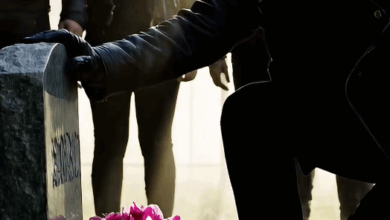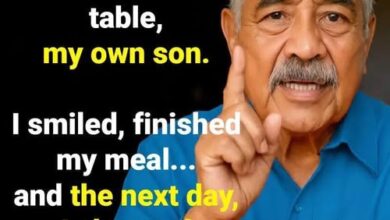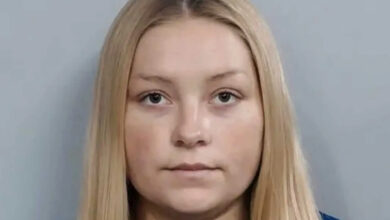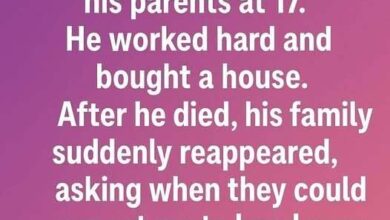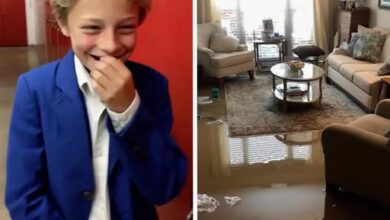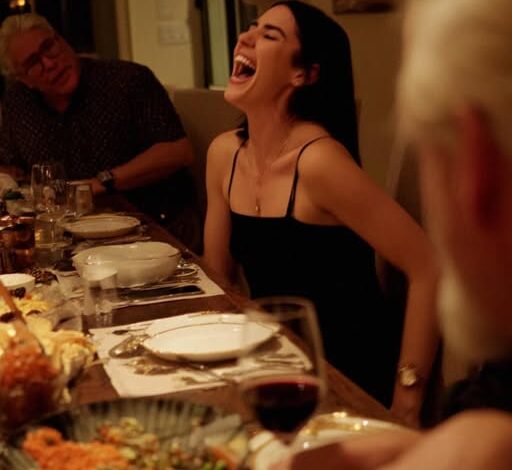
My Divorced Dad Found Happiness Again Until His Fiancée’s ‘Joke’ About My Mom Made Him Immediately Call off the Wedding
I was twenty-five when my dad called to say he’d proposed. I pressed the phone to my ear and tried to match his excitement, even as something small and stubborn tugged at my gut. Love doesn’t disappear after a divorce—it changes shape—but the shape of this new chapter felt… uncertain.
My parents split when I was fifteen. There were no slammed doors or courtroom battles, just two people quietly admitting they’d stopped choosing each other. My mom, Laura, carried the heavy parts with steady dignity—raising my brother, Sam, and me without once speaking badly about our dad. “He’s your father, Lizzie,” she’d remind me. “That will never change.” I didn’t grasp the grace in that sentence until much later.
Then Dad met Amanda. She was thirty-five—fifteen years younger than him—with a polished kind of brightness that drew attention the moment she walked into a room. I wanted to like her because Dad seemed lighter, as if someone had opened a window in his life. But little comments kept cutting the breeze.
“Well, I’m younger than your mom,” she said once, swirling white wine like a prop. “That has to be new and exciting for your dad, huh?”
Another time, at a dinner she hosted, she tipped a carrot stick through dip and smiled. “I cook more modern food than your mother. I bet she’s all casseroles and meatloaf.”
Dad shut it down every time. “Don’t compare yourself to Laura,” he said, gentle but firm. “She’s the mother of my kids, and she’ll always be respected in this house.” Amanda laughed it off, but something flickered in her eyes that wasn’t humor. Insecurity has a way of hunting for mirrors.
Still, he laughed more around her. He cooked again. He looked hopeful. So when he told me he’d proposed, I said I was happy if he was. “Everyone deserves another shot at happiness,” he said. I wanted to believe him.
To celebrate, Dad hosted a family dinner. He wanted everyone there: me, Sam, our grandparents, an aunt and uncle from Mom’s side. “Families are complicated,” he said, “but worth bringing together.” The table glowed with candles and folded napkins, the kind of effort that says, Please go well.
For the first hour, it did. The roast was good. My grandparents beamed. Even Sam, who usually retreated behind his phone at gatherings, cracked jokes and relaxed into his chair. I caught myself thinking, Maybe.
Then my grandmother set down her fork and smiled at Dad with a softness only she can manage. “David,” she said, “I’m glad you’ve found happiness again—like you once had with Laura.”
Her words weren’t barbed. They were tender. The room shifted anyway. I saw it in Amanda’s eyes: the spark that precedes a burn.
She laughed—loud and sharp—and leaned back in her chair. “Well, obviously Laura must have been a terrible wife if I’m the one here now,” she said, lifting her glass. “Laura blew her chance. I’m the upgrade, of course.”
The silence that followed was so complete I could hear the candles crackle. My aunt went pale. My grandfather’s jaw tightened. Sam’s chair screeched as he stood, his glass tipping, wine bleeding across a napkin like a bruise.
“Don’t you dare talk about our mom like that,” he snapped. His voice rattled the silverware.
Amanda’s smile faltered. “Oh, come on, it’s a joke, David,” she said, aiming for airy and landing on brittle. “If she was such a great wife, you wouldn’t be with me now, right? You’d be happy at home with your kids and your wife.”
Something in my chest pulled taut, then broke. I pushed my chair back and stood, lacking words and air at the same time. I was almost to the doorway when my father spoke—louder than I’d ever heard him.
“I will never marry someone who insults the mother of my children,” he said, each word clean and deliberate. “Especially in front of them. If you think that’s funny, you don’t know me at all.”
For a beat, the room didn’t breathe. Then Amanda reached across the table, voice high and frantic. “David, it was one stupid comment. Don’t throw away our future—”
“Our future ends here,” he said, not raising his voice, not dropping his gaze. “Get out of my house.”
Her chair dragged, heels clicked, a door slammed. The sound echoed through the quiet like a gavel.
We drifted to the kitchen as if pulled by the same tide. Dad set a chocolate cake on the counter and reached for the kettle. “Tea?” he asked, and somehow the ordinary question steadied us. We ate cake at the table under the soft kitchen light, hands wrapped around warm mugs, letting silence settle in a way that wasn’t empty.
“I promised myself,” Dad said at last, eyes on the steam, “that no matter what happened between your mom and me, I would always respect her. She gave me two amazing kids. After the divorce, she shouldered the hard parts without asking for applause. She deserves my respect for the rest of my life. If Amanda couldn’t see that, she never belonged here.”
Sam blew out a breath he’d been holding for years. “You scared me for a while,” he said. “I thought you forgot who you were.”
“I didn’t forget,” Dad said quietly. “I wasn’t the husband your mom deserved. We became roommates in separate worlds. That’s not a marriage. But I never forgot who carried you both through.”
I reached across the table and squeezed his hand. “I don’t think I’ve ever been prouder of you.”
He nodded, a small, tired smile tugging at one corner of his mouth. “Then it was worth it.”
In the morning, a string of messages from Amanda lit up his phone—apologies, explanations, a few barbs dressed as jokes. He read the first ones, rolled his eyes at the next, then blocked the number and set the phone face-down. A week later, the engagement was formally over.
When we told Mom what happened, we kept it honest but not cruel. Her jaw tightened at the story, then softened when we said Dad ended it at the table. “He did the right thing,” she said, voice even. No triumph, no gloating. Just quiet pride. “It isn’t easy to stand up to someone you thought you loved. He did it for you. That matters.”
Sam snorted. “Also, she was only ten years older than Liz. What was that about?”
Mom actually laughed, small and surprised at her own sound. “You know what I think you all need? Ice cream.”
“Now?” I asked.
“There’s no wrong season for ice cream,” she said, grabbing her purse like a woman with a plan.
We ended up in the booth we used to crowd into when we were kids, all elbows and sticky napkins. Dad joined us—tired, lighter—and Sam put whipped cream on my nose like he was twelve again. It wasn’t perfect; divorce still existed. Grief still existed. But something unknotted inside me. We could bend without breaking. We already were.
Respect, I realized, is the spine of a family. Love may change shape after a divorce, but respect keeps the shape from collapsing. My father didn’t erase the past to move on; he honored it. My mother didn’t poison the present with old hurt; she protected it. And when a cruel remark tried to turn our table into a battleground, my dad chose to be a father first.
On a cold night over melting sundaes, hope felt less like a big word and more like a simple one: yes. Yes to boundaries. Yes to gratitude. Yes to love that refuses to climb by tearing someone else down. We went home without a fiancée, but with something sturdier—an agreed-upon rule of the house, spoken and lived:
We move forward, but we do not forget who held us up.
